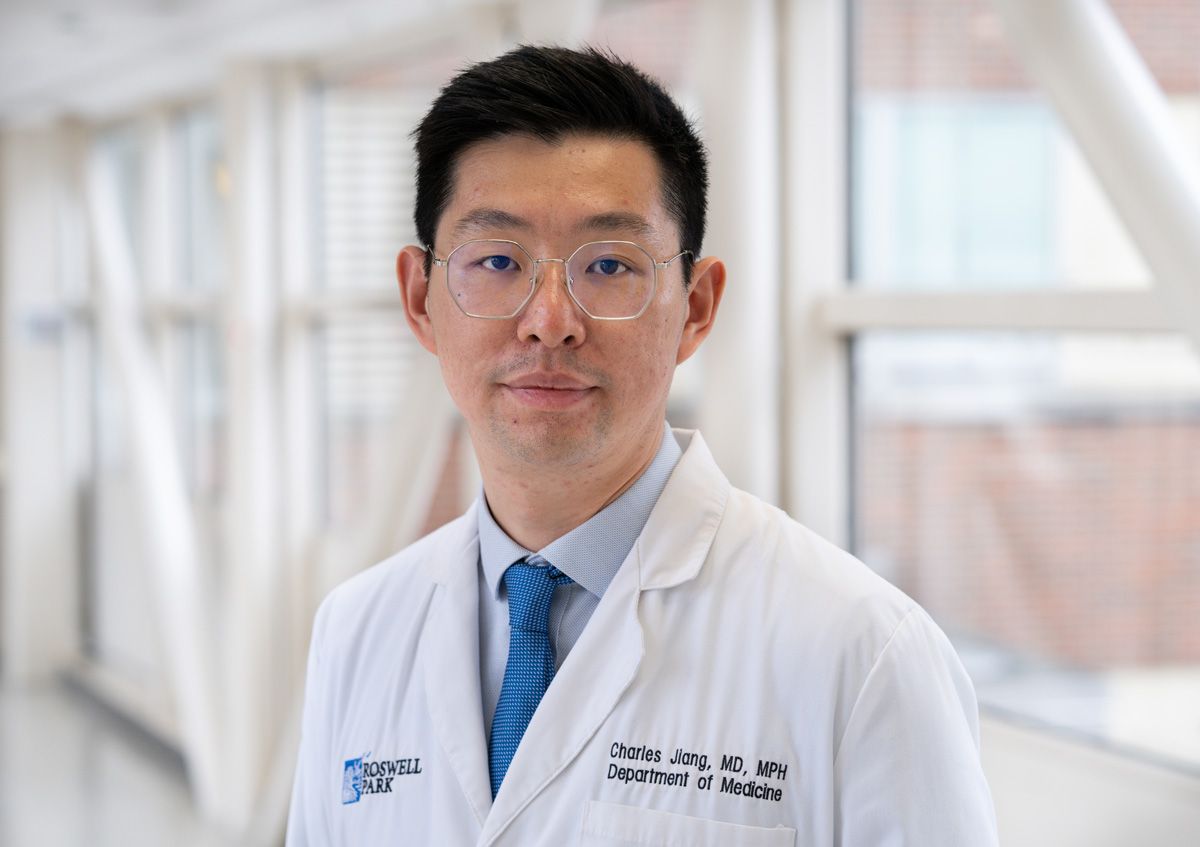Roswell Park research identifies disparities impacting access to much-needed care
- Cancer survivors are more likely to face transportation barriers to healthcare
- Individuals who live below the poverty line or are uninsured are most affected
- Efforts are needed to improve access to healthcare for all patients with cancer
BUFFALO, N.Y. — Transportation barriers, including access to public transportation or a personal vehicle, disproportionately affect cancer survivors, particularly if they are young, uninsured or live below the poverty line, according to results of a study published today in JAMA Oncology.
“People with a history of cancer usually have increased medical needs for treatment of cancer and other illnesses, and timely access to care is critical to optimize health outcomes,” says Changchuan Jiang, MD, MPH, a Hematology-Oncology Fellow in Department of Medicine at Roswell Park Comprehensive Cancer Center and lead author of the study. “Transportation is a potentially modifiable but often overlooked barrier to cancer care.”
Transportation to and from healthcare appointments is a basic but necessary part of the healthcare process, but many individuals do not have access to reliable transport in the form of a personal vehicle or public bus or train routes. To better understand how these transportation problems impact cancer survivors, Dr. Jiang, in collaboration with scientists from the American Cancer Society and the Icahn School of Medicine at Mount Sinai, examined data from the 2014-2018 National Health Interview Survey, a nationally representative cross-sectional survey of the civilian U.S. population.
The survey asked 148,195 participants 18 years and older, 11,586 of whom had a cancer history, “Have you delayed getting care in the past 12 months because you did not have transportation?” The researchers compared transportation barriers between survivors and adults without a cancer history, stratified by age group, and assessed associations between sociodemographic factors, health and healthcare-related factors.
The Roswell Park research found that cancer survivors were nearly twice as likely to report delays in care due to transportation barriers in the past 12 months compared with adults without a cancer history (3.1% vs. 1.8%). Cancer survivors who were younger, poor, uninsured or publicly insured, unmarried, or had functional limitations or multiple comorbidities were more likely than other people surveyed to experience a delay in necessary healthcare due to transportation issues.
Individuals with an income at or below the federal poverty line were the most likely to encounter transportation-related barriers to healthcare, as were individuals with functional limitations or other comorbid illnesses. The study also found that despite Medicaid’s mandated nonemergency medical transportation (NEMT) coverage, working-age cancer survivors with public insurance (primarily Medicaid) were more likely to report transportation barriers than uninsured survivors, suggesting that current NEMT programs do not meet the needs of all patients with cancer.
“Missed appointments not only affect the patient’s health but also compromise clinical productivity, causing issues including scheduling delays for other patients and unused clinical resources and staff time,” says Dr. Jiang. “Transportation barriers also prevent patients, especially those from underserved communities, from participating in clinical trials, which could be life-saving.”
The study, which is the first to focus on transportation-related delays in care on a national level among patients with a cancer history, provides evidence that barriers to transportation can be costly because patients without reliable transportation are more likely to call for an ambulance or visit the emergency department when they can’t access the clinic or doctor’s office on their own.
“More comprehensive approaches are needed to identify and overcome transportation barriers to care, with consideration of related barriers, including financial limitations and food or housing insecurity,” adds Dr. Jiang. “This effort will require the involvement of many different groups, including physicians, nurses, social workers and insurance companies. Overall, overcoming transportation barriers is an essential part of larger efforts to improve healthcare for patients with cancer, and it could be more cost-effective for healthcare facilities and insurance companies to simply provide reliable transportation services for these patients.”
###
Roswell Park Comprehensive Cancer Center is a community united by the drive to eliminate cancer’s grip on humanity by unlocking its secrets through personalized approaches and unleashing the healing power of hope. Founded by Dr. Roswell Park in 1898, it is the only National Cancer Institute-designated comprehensive cancer center in Upstate New York. Learn more at www.roswellpark.org, or contact us at 1-800-ROSWELL (1-800-767-9355) or ASKRoswell@RoswellPark.org.
Rebecca Vogt, Media Relations Specialist
716-845-4919; rebecca.vogt@roswellpark.org
